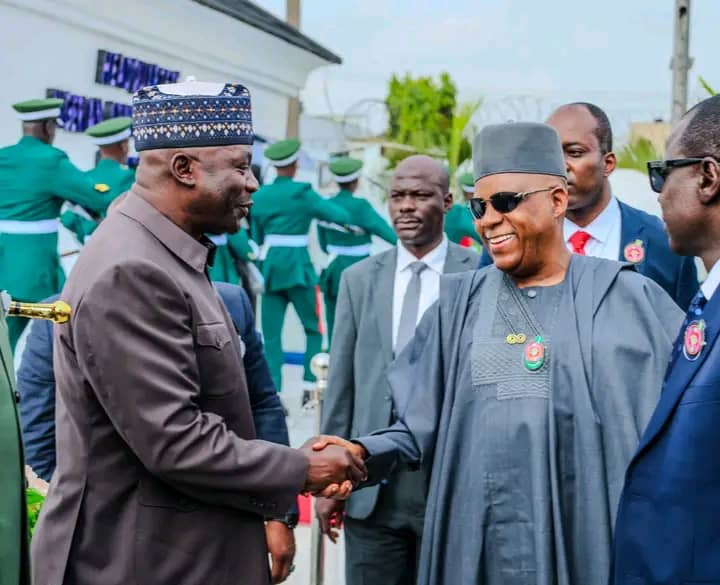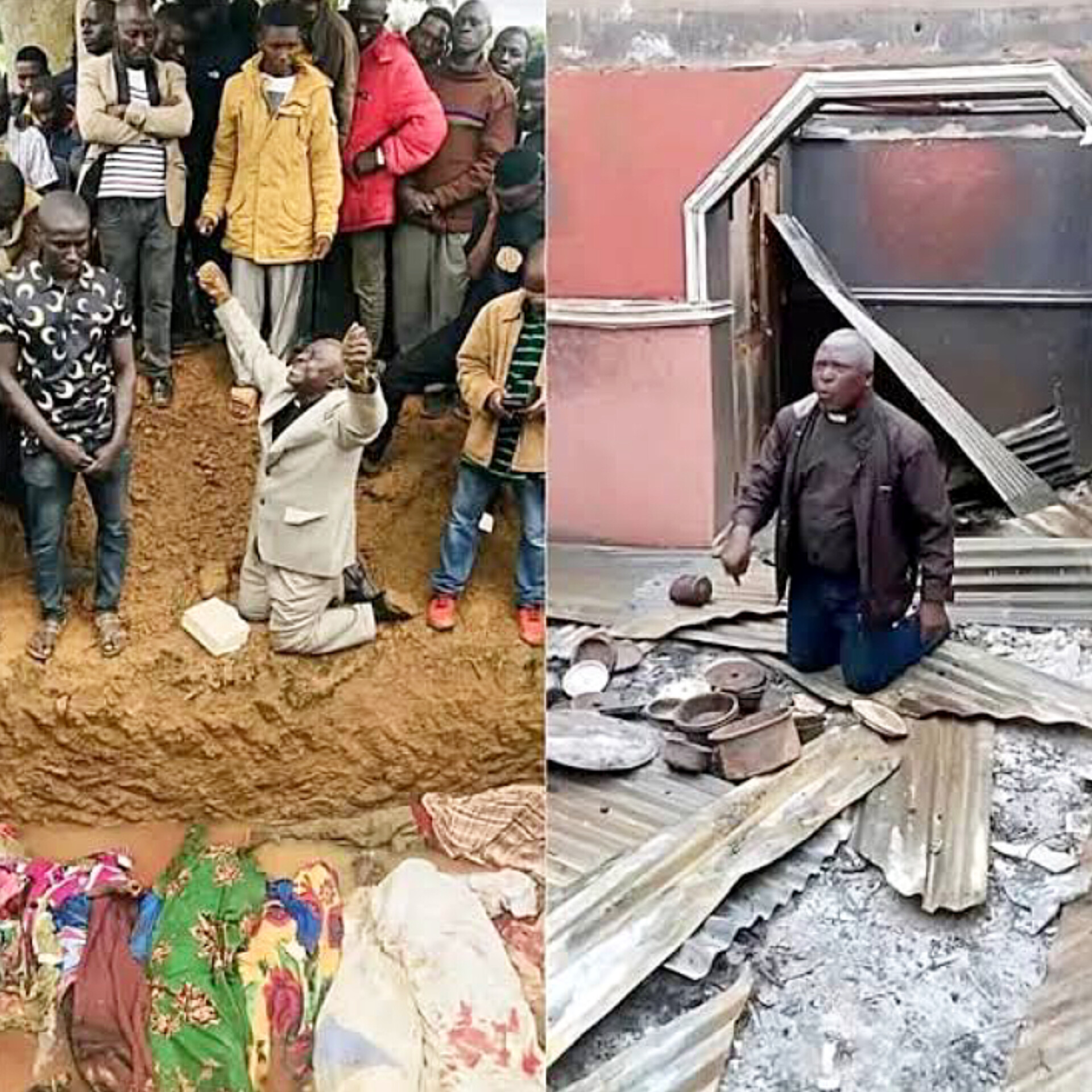General Musa’s Rising Charisma: A Strategic Asset for President Tinubu and a Political Advantage the APC Cannot Ignore
In every political era, certain personalities rise above the noise not because they shout the loudest, not because they seek attention, but because their character, competence, and calm presence resonate with the public in ways the political class often fails to anticipate.
In Nigeria today, that figure is General Christopher Gwabin Musa (Rtd.), the Minister of Defence and one of the most unexpectedly influential personalities in the Tinubu administration.
His influence is not formal.
It is not partisan.
It is not manufactured.
It is rooted in earned trust built over decades of military service and now crystallizing into a quiet yet powerful political force.
This article examines the extraordinary rise of Musa’s charisma, its implications for the Tinubu administration, and why the APC may be sitting on one of its most significant political advantages heading into the coming years.
A Reputation Built on Service, Not Politics
Unlike many public figures whose reputations are shaped in the arena of political bargaining, alliances, and media engineering, General Musa’s national appeal is a by-product of his professional journey.
From his days at the forefront of counter-insurgency operations to his tenure as Chief of Defence Staff, Musa became synonymous with discipline, integrity, humility, operational excellence, and national service above personal ambition.
These qualities have followed him into the Federal Executive Council.
In a period when Nigeria continues to grapple with insurgency, banditry, regional tensions, and organized criminal networks, Musa’s appointment was a deliberate signal by President Tinubu to anchor national defence in competence rather than politics.
That decision is now yielding political dividends.
Why Musa’s Charisma Is Different
In Nigeria, political charisma is often loud, theatrical, combative, and attention-seeking. Musa’s charisma is the opposite. It is quiet, steady, and deeply persuasive.
It is the charisma of competence, not performance.
His public appeal rests on four pillars:
1. Calm Demeanor
At a time when public communication is often emotionally charged, Musa speaks with measured precision. He avoids sensationalism and speaks to citizens with respect. His clarity inspires confidence.
2. Authentic Humility
He does not project himself as a politician hungry for relevance. He carries himself as a custodian of responsibility. This humility makes him relatable and trustworthy.
3. Record-Backed Authority
Musa does not need political propaganda to legitimize his views. Nigerians remember his frontline contributions from overseeing the mass surrender of insurgents to stabilizing military operations in difficult theatres.
4. A Non-Partisan Reputation
Though a key figure in the Tinubu administration, Musa is viewed as above partisan politics. He is seen as a national asset, not a party operative. This gives him credibility across political divides.
This combination of attributes is incredibly rare and politically invaluable.
A Strategic Win for the Tinubu Administration
President Bola Ahmed Tinubu has long demonstrated an ability to recognize and elevate credible technocrats whose work bolsters the image of his government. Musa’s appointment fits this strategic pattern perfectly.
Through Musa, the administration has achieved the following:
1. Restored Public Confidence in Defence Leadership
After years of skepticism toward Nigeria’s security system, Musa’s reputation reassures citizens that competent hands are steering the sector.
2. Strengthened Internal Stability
His leadership provides stability and continuity within the military hierarchy, reducing internal friction and strengthening operational cohesion.
3. Projected Professionalism Over Politics
Musa symbolizes the administration’s preference for expertise over political interference a key narrative as Tinubu implements complex reforms.
4. Enhanced the APC’s National Appeal
A credible, widely respected figure in a politically tense environment helps soften public criticism toward the government.
These advantages are not symbolic they are strategic.
A Political Advantage the APC Cannot Ignore
The APC currently faces a difficult communication environment due to economic reforms, subsidy removal impacts, and rising living costs. In moments like this, political parties need figures who inspire trust.
General Musa fits that profile.
He is a:
credible spokesperson
national unifier
trusted public face
competent operator
reassuring communicator
He reduces political hostility without engaging in politics.
This is political capital rare, powerful, and often decisive.
A Bridge Across Nigeria’s Divides
One of Musa’s most remarkable strengths is that he appeals to voters across ethnic, religious, and regional lines.
Across the North, he is respected for professionalism and results.
Across the South, he is admired for his articulate communication and unassuming leadership style.
Among Christian communities, his presence in a high-security office is seen as reassuring and inclusive.
Among Muslim communities, his military reputation commands respect.
Among the youth, he represents discipline, intelligence, calm, and a non-corrupt public image.
This broad appeal is politically significant. Very few figures in Nigeria today can draw admiration across such diverse constituencies without controversy. Musa is one of them.
Media Visibility and Rising Public Trust
In recent months, Musa’s visibility has increased not because he is seeking attention, but because:
he is central to resolving critical national issues
he communicates effectively
media platforms find him credible
citizens trust him instinctively
His statements often go viral because Nigerians yearn for leadership that sounds both competent and sincere.
Public discourse on national security, governance, and leadership quality increasingly references him as a stabilizing figure.
This organic rise is the clearest proof that his political value is expanding naturally.
A Nightmare for the Opposition’s Strategy
Opposition parties typically rely on portraying government officials as incompetent or corrupt. But attacking Musa is politically risky because:
he has no corruption scandals
no record of ethnic or religious bias
no political baggage
no history of public misconduct
no reputation for disrespect or arrogance
He is difficult to discredit.
Any attempt to malign him risks alienating neutral Nigerians who view him as one of the few credible figures in government.
This gives the APC a protective shield and forces the opposition to rethink its messaging strategy.
Could Musa Become a National Political Force?
Not necessarily in the electoral sense though in politics, anything is possible but in terms of influence, Musa is already becoming a defining figure.
He strengthens:
public trust
institutional legitimacy
inter-agency cooperation
national confidence in security leadership
APC’s perception across key demographics
In previous administrations, figures like Dora Akunyili, Lamido Sanusi, and Attahiru Jega became national stabilizers. Musa fits into this lineage.
His influence, if strategically harnessed, could reshape the APC’s national image ahead of the next election cycle.
Conclusion: The Era of The Musa Effect
General Christopher Musa may not be a traditional politician, but he represents the kind of leadership Nigerians crave competent, calm, sincere, and unifying.
He strengthens the Tinubu administration.
He boosts the APC’s credibility.
He reassures investors, communities, and citizens.
He elevates the public perception of Nigeria’s security leadership.
He bridges divides in a polarized nation.
In an era where political noise often disguises a lack of substance, Musa’s quiet strength is refreshing. Nigeria is noticing. The political establishment is noticing. And the ruling party, if strategic, will recognize that it has in Musa one of its most valuable assets.
The Musa Effect has begun.
Its implications will be felt for years to come.
By Samuel Ateh Stephen
Digital Strategist & Public Affairs Commentator
Focused on National Development
19/01/2025



